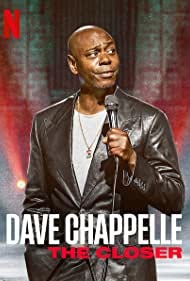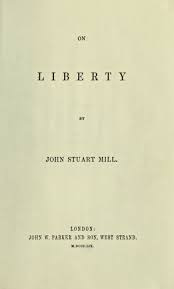Speech Is Not Violence. Violence Is Violence.
If the Attorney General can shut down speech about Charlie Kirk, what’s to stop her from silencing you?
Over the last several weeks, I’ve faced pushback from all sides for not fitting neatly into anyone’s tribe. For example, friends who generally vote Democratic objected to my opposition to California’s ballot measure that would allow mid-decade redistricting of U.S. House seats (Prop 50). Others who are FOX News wathcers, have voted for Trump, or what-have-you have shown disdain because I’m not sufficiently deferential to Donald Trump while being insufficiently hostile toward “the left.”
That’s fine. For one, I’m used to it by now. And B (and more importantly), we’re not supposed to agree about everything.
But when the President, Vice President, Attorney General, Secretary of State, and other key officials threaten consequences for citizens who say things they dislike—especially in the aftermath of the assassination of Charlie Kirk—it’s time to get clear about what free speech actually means in law and in practice.
My thesis is simple: “Speech is not violence. Violence is violence.” (HT: Greg Lukianoff.) And the First Amendment protects even speech we loathe.
Two common confusions
From the MAGA-sphere (this week): Calls to punish “hate speech,” to fire people for posts, to “shut down” those who say it was “okay” that Kirk was killed. Cruel? Yes. Legal to say? Also yes.
From many self-identified progressives (recent years): Collapsing offense into harm and treating speech itself as violence.
Both are mistakes. The right response to bad speech is better speech—not the state’s boot.
The Chappelle test case
Think back to 2021. Remember that quaint period when the individual who announced a “wild” event and delivered the keynote address that directly preceded (if not led to) a violent attempt to disrupt the peaceful transfer of power was still the former president? Leaving that aside for now, I’m actually thinking of Dave Chappelle’s Netflix special The Closer.
Taking in Chappelle can feel like listening to avant-garde jazz—flashes of brilliance alongside flourishes I’m not sophisticated enough to appreciate. Some jokes were cringeworthy. Some made me laugh and then wince. But his story about a trans friend was genuinely poignant.
Many folks I know—including friends of mine who work at Netflix—saw it differently. They argued that mocking an already marginalized group is itself a form of harm. For them, Chappelle’s jokes weren’t just offensive; they were dangerous.
Yet, I defended Chappelle’s right to perform and Netflix’s right to give him a platform—and then got dog-piled by a tight-knit industry circle. That pushback felt like excommunication in the moment, but it was actually something else: counter-speech. And counter-speech is exactly what John Stuart Mill argued makes truth sharper.
The principles underneath
John Stuart Mill, On Liberty:
“If all mankind minus one, were of one opinion, and only one person were of the contrary opinion, mankind would be no more justified in silencing that one person, than he, if he had the power, would be justified in silencing mankind… the peculiar evil of silencing the expression of an opinion is, that it is robbing the human race; posterity as well as the existing generation; those who dissent from the opinion, still more than those who hold it. If the opinion is right, they are deprived of the opportunity of exchanging error for truth: if wrong, they lose, what is almost as great a benefit, the clearer perception and livelier impression of truth, produced by its collision with error.” (John Stuart Mill, On Liberty, Ch. 2)
American law reflects this instinct:
Defamation (libel in print, slander when spoken) isn’t protected. For public officials or public figures, New York Times v. Sullivan (1964) requires proof of actual malice—knowledge of falsity or reckless disregard.
Incitement meets a deliberately high bar. In Brandenburg v. Ohio (1969), the Court held that speech may be punished only if it is intended and likely to produce imminent lawless action.
There is no “hate speech” exception in U.S. law. You can condemn it, boycott it, answer it—but you cannot outlaw it simply because it offends.
Apply it to this week
That’s why Attorney General Pam Bondi’s recent statements are alarming:
“We will absolutely target you, go after you, if you are targeting anyone with hate speech… And I have no tolerance–it’s not free speech when you come out and you say it’s okay what happened to Charlie. We’re firing people. We’re seeing people online who are posting hate speech. They should be shut down. They should be stopped from doing this. And they should know there are consequences for your actions.”
Celebrating a tragedy is indecent; however, it is also protected. And when the nation’s chief law-enforcement officer calls for punishment of such expression, that’s not just intemperate—it’s constitutionally illiterate.
Reassessing my own rules
Look. I certainly don’t have a spotless record when it comes to all this. I didn’t come out of the womb reciting Locke and Mill. You may have seen me say as recently as earlier this year: “Nonsense will be muted. Incivility blocked. Proven falsehoods and threats reported.”
The last clause still stands—true threats and incitement are out of bounds. But Mill, Lukianoff, Haidt and others have persuaded me the first two can slide too quickly into silencing dissent. Better to meet bad speech with better speech.
Here’s the thing…
We honor Charlie Kirk and all those who have been the victims of political violence by naming it as such and categorically condemning it. We honor the Constitution by defending speech—even (especially!) when we adamantly disagree with it.
The clear and present danger isn’t offensive posts. It’s handing government the power to decide what counts as “hate” and who may speak. That power never stops at your enemies.
So punish violence. Prosecute true incitement and even defamation. And for everything else: argue harder, grow thicker skin, and remember—speech is not violence. Violence is violence.



Wonderful, scholarly, insightful essay, Corey.